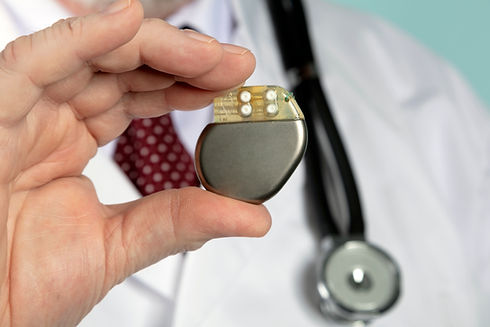Consultant Cardiologist in Cambridge
Dr Charis Costopoulos
_edited.png)
Dr Charis Costopoulos is a highly esteemed and experienced consultant cardiologist who specialises in both general and interventional cardiology in London. He is currently the Clinical Lead for Structural Heart Intervention at the world-renowned Royal Papworth Hospital in Cambridge, which serves patients from all over the UK and beyond, including Cambridge.
His main areas of expertise include coronary artery disease, chest pain, palpitations, breathlessness, heart failure, and valvular heart disease. He performs a variety of interventional procedures including coronary angioplasty (stent insertion), transcatheter aortic valve implantation (TAVI), MitraClip implantation and patent foramen ovale (PFO) closure, amongst many others.
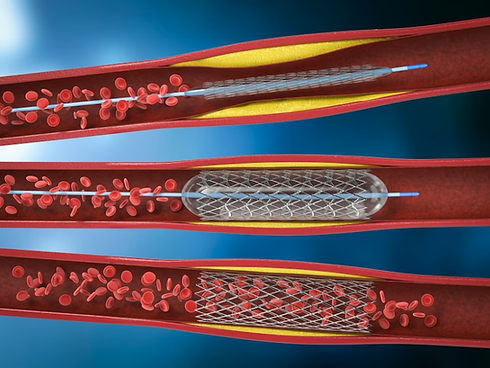
Percutaneous Coronary Intervention in Cambridge
PCI is a minimally invasive procedure used to treat narrowed or blocked coronary arteries. These are the blood vessels that supply the muscle of the heart with oxygen and the required nutrients. During the procedure, a catheter (a thin, flexible tube) is inserted into one of the arteries in the arm or groin and threaded up to the coronary arteries.
Treatment of the narrowed segment usually involves the inflation of a balloon in the diseased area with the subsequent insertion of a stent, thereby relieving the blockage and allowing blood to flow freely to the muscle of the heart.
Tavi Treatment in Cambridge
TAVI is another minimally invasive procedure used to replace a damaged aortic valve in the heart. It involves the insertion of a new artificial valve into the heart through a catheter (a thin, flexible tube) rather than through open heart surgery. The catheter is usually inserted through a small incision in the groin and threaded up to the heart.
Once the new valve is in place, it is expanded and secured in position, effectively replacing the damaged valve. A TAVI procedure is associated with reduced recovery time and is an excellent treatment in appropriate patients as it avoids major heart surgery.
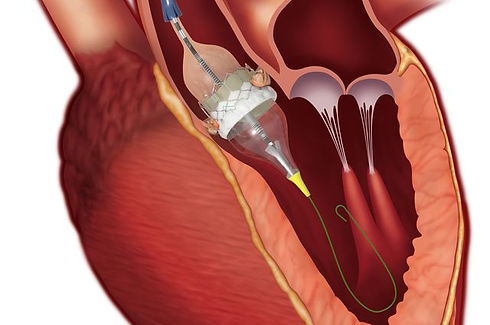
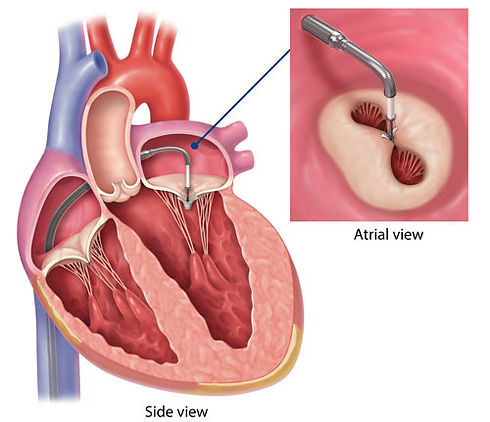
Transcatheter edge to edge repair in Cambridge
Transcatheter mitral valve edge-to-edge repair is a minimally invasive surgical procedure used to treat a condition called mitral regurgitation. This condition occurs when the mitral valve, which separates the left atrium and left ventricle in the heart, fails to close properly causing blood to leak back into the left atrium. During the procedure, a catheter (a thin, flexible tube) is inserted into the patient's femoral vein in the groin and guided up to the heart.
Using a special device, which resembles a clip, the edges of the mitral valve are brought closely together, effectively reducing the size of the opening and preventing blood from leaking back into the left atrium. This procedure is far less invasive than traditional open-heart surgery and is offered to patients who are not candidates for surgery due to age or other health conditions. It typically requires only a short hospital stay and has a relatively low risk of complications.
Patent Foramen Ovale closure in Cambridge
PFO closure is a procedure performed to close a small hole in the heart known as a patent foramen ovale (PFO). This hole is present in the heart during fetal development and, in most people, it closes shortly after birth. In some cases, however, the hole remains open which can occasionally lead to certain health problems such as stroke.
PFO closure is typically done by inserting a small device, such as a closure patch or plug, into the hole with the use of a catheter (a thin, flexible tube) which is advanced from one of the veins in the groin. The device is then positioned to cover the hole and prevent blood from flowing through it. PFO closure is also minimally invasive and is usually performed as a day case.

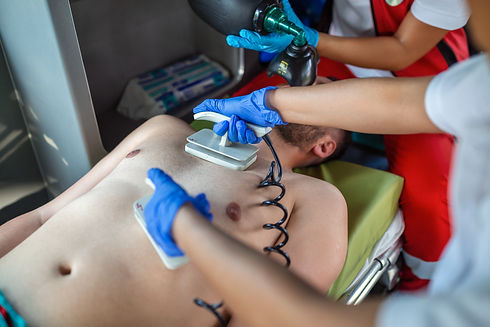
Cardioversion in Cambridge
Cardioversion is a used to treat certain types of abnormal heart rhythms, such as atrial fibrillation, atrial flutter or supraventricular tachycardia. The procedure involves delivering a controlled electric shock to the heart through electrodes placed on the chest. The shock resets the heart's rhythm and allows it to return to a normal rhythm.
The shock may be delivered once or multiple times, depending on the patient's response.
After the procedure, the patient will be monitored for a short period to ensure that their heart is functioning normally and will be discharge home on the same day.
Pacemaker implantation and catheter ablation procedures in Cambridge
Pacemaker implantation is a day case procedure used to treat slow heart rhythms in patients experiencing symptoms of light-headedness and black-outs. It can also help with the heart’s pumping function for patients with heart muscle weakness.
Catheter ablation procedures are another example of minimally invasive procedures performed through one of the blood vessels in the groin.
They are used for the treatment of a number of heart rhythm abnormalities such as atrial fibrillation, atrial flutter, as well as supraventricular and ventricular tachycardias. The procedure involves the creation of small scars in the heart through the delivery of heat or extreme cold which aims to block the aforementioned heart rhythms.
At the Cambridge Cardiology Clinic we work closely with experts in these fields so you can be assured that, if these are indicated, you will be referred accordingly.
